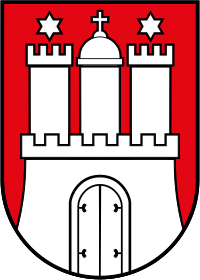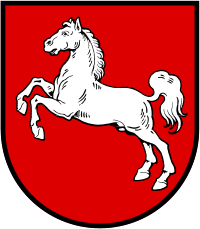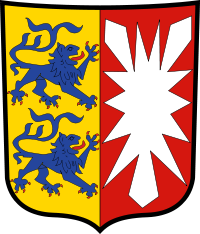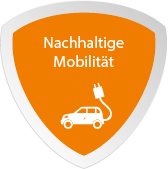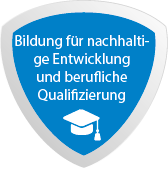Die nachfolgenden Inhalte stammen aus dem Kooperationsprogramm "North Sea" (Version 1.2).
Kurzbeschreibung
This actions supports a variety of measures to encourage private car owners to change to public transportation alternatives for their private journeys.
Förderziel
Develop demonstrations of innovative and/or improved transport and logistics solutions with potential to move private transportation from the car to public transportation.
Fördergegenstände
Bildung, Qualifizierung, Sachinvestitionen in Umweltschutzmaßnahmen, Strategieentwicklung, Konzept-, Teilkonzepterstellung, Vernetzung, Kooperation, Wissenstransfer
Zuwendungsempfänger
This list of beneficiaries is non-exhaustive. Please check if your particular organization is eligible.
- Public authorities and their agencies – National, regional, municipal and local administrations, regional development agencies, industrial parks and incubators, regional environmental agencies etc.
- National and European interest organisations and institutes.
- Knowledge institutions – Universities, colleges, research centres, technology centres, providers of professional training, schools, consultants, cluster managers etc.
- Enterprises – Including social enterprises and with a particular focus on small and medium sized enterprises.
- Civil society – Associations, NGOs, charities, community organisations etc.
Förderfähige Gebietskulisse
The programme area encompasses in Germany Bremen, Hamburg, Schleswig-Holstein as well as the NUTS-2-regions Braunschweig, Hannover, Lüneburg und Weser-Ems.
Further countries in the programme area are Dänemark, Norwegen as well as certain regions in the Niederlande, Belgien and the Vereingtes Königreich. A list of the regions can be found here: Link.
Art der Unterstützung
Non-repayable grant
Beschreibung
Actions are assigned to Programme-Part "Green transport and mobility".
The second objective is focused on exploring the wide range of options available for greener transport on shorter journeys – most importantly looking at how these different options could be combined to pilot the transition of local and regional transport systems to much lower carbon solutions. Transnational cooperation can support the joint development of new approaches that explore viable alternatives to conventionally fuelled vehicles for shorter journeys. Living laboratory approaches could be particularly effective as a way of testing a range of interlinked solutions in the same area and finding transport solutions that offer comparable levels of convenience at a much lower environmental cost. In many cases effective solutions will depend on finding solutions for both goods and people on the same routes. Integrated regional solutions that consider the full range of travel needs are therefore preferred.
The programme will also address personal journeys and the need to move from private cars to other means of transport including:
- Increasing the frequency and capacity of public transport services.
- Encouraging more active transport (walking and cycling) in urban areas.
- Behavioural change amongst users.
- Integration of services to bring together electrified rail services, trams, rapid transit systems, buses and improved conditions for walking and cycling to allow rapid movement independent of cars.
Specific actions could include:
- Integrated ticketing and traffic information systems across various forms of transport including ships and planes, which would simplify combined transport and contribute to increased occupancy rates.
- Car-sharing services, which can reduce the pressure on public transport and reduce the number of private cars on the road as well as offering a more sustainable solution than single occupant journeys on routes where no public transport is available.
- Integrated strategies that will provide additional street space for walking, cycling, green infrastructure etc. and will therefore also improve quality of life and the urban environment.
- Urban planning should encourage shorter journeys and better access to services, while the cityscape should be designed in way that encourage active travel.
For further information please consult the cooperation programme (pp. 88-93). Additional information on speific types of projects e.g. testing and training, investment and pilot action, best practice, new models, strategies and so forth are available on pp. 22-24.
Zielgruppe
Private car owners.
Auswahlverfahren
Comprehensive Information on the application assessment process is available under the following Link.
Projektauswahlkriterien
Participation in the programme is not limited to specific types of organization/institution and will rather be decided based on:
- The ability of a partner to contribute to the outputs and results identified for the specific objective.
- The extent to which the partnership can influence development in the wider programme area (i.e. not just a local effect).
- The overall balance of the partnership in terms of geography, expertise and competence (are the participating organisations able to influence the theme?).
- The ability of the partners to live up to the formal requirements for the programme.
The criteria and guidelines for project the selection of projects can be found on pp. 93-94 of the cooperation programme. Additional information on speific types of projects e.g. testing and training, investment and pilot action, best practice, new models, strategies and so forth are available on pp. 22-24.
Laufzeit
Start der Maßnahme: 01.01.2014
Ende der Maßnahme: 31.12.2023


